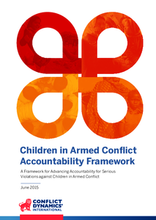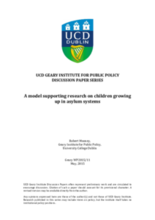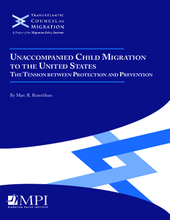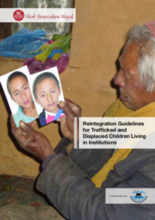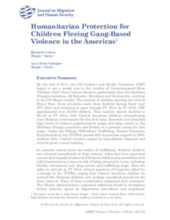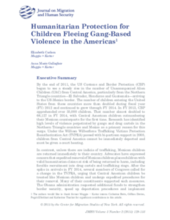Displaying 381 - 390 of 532
This Framework is designed as a practical resource to promote accountability for serious violations of international law committed against children in armed conflict.
This paper examines the Irish national and international legislation governing asylum systems, provides an overview of the Irish Direct Provision system and suggests a model under which these cases may be analysed across different societal levels.
This study aimed to bridge the gap in knowledge of the relationship between general mental health and working with unaccompanied asylum-seeking refugee children who are due for forced repatriation for social workers and police officers in Sweden.
This report examines the policy challenge in the United States of balancing protection and immigration enforcement in the recent unaccompanied child migration “crisis” in the US.
The overall objective of this research was to increase understanding of kinship care practices as experienced by Syrian refugee children and caregivers in Jordan, which can be used to inform programming and policy developments on children’s care and protection in a humanitarian context.
This document provides guidelines to reintegrating trafficked and displaced children in Nepal, based on the approach and methodology developed and utilized by Next Generation Nepal (NGN) and The Himalayan Innovative Society (THIS).
This paper provides an overview of the violence perpetrated by gangs and other criminal organizations in Mexico and Central America which compels many children to flee their communities. The paper also describes the US government’s obligations to protect unaccompanied children upon arrival, and good practices of other governments relating to the protection of child migrants and refugees.
This paper provides an overview of the violence perpetrated by gangs and other criminal organizations in Mexico and Central America which compels many children to flee their communities. The paper also describes the US government’s obligations to protect unaccompanied children upon arrival, and good practices of other governments relating to the protection of child migrants and refugees.
This paper identifies the challenges the OVC are experiencing in schools as absenteeism, lack of physical infrastructure, insecurity, psychological trauma, among others. The paper also proposes strategies and programmes that various stakeholders have, and should put in place to assist OVC.
This report presents findings from the impact evaluation of a parenting and family skills intervention for the displaced Burmese population in Thailand called the Happy Families Program which was implemented by the IRC from 2011 to 2013.

